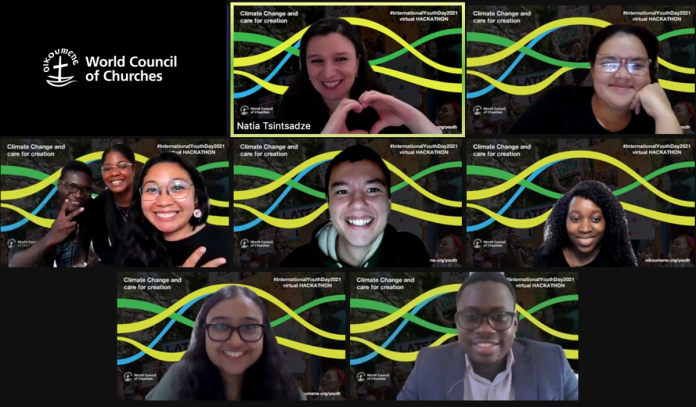
On Ecumenical International Youth Day, young people gathered online for a collaborative exchange of ideas—a unique kind of “hackathon”—for leading the way toward climate justice.
Welcoming young people from across the globe, World Council of Churches (WCC) interim deputy general secretary Rev. Dr Odair Pedroso Mateus offered greetings to the gathering. Mateus spoke on behalf of Rev. Prof. Dr Ioan Sauca, WCC acting general secretary, currently on vacation.
“We live today in a situation of climate emergency,” he said. “The theme is high on the agenda of the WCC 11th Assembly, to be held in Karlsruhe, Germany, in 2022. What does it mean to confess and to proclaim the assembly theme — ‘Christ’s love moves the world to reconciliation and unity’—amidst global climate emergency?”
Mateus added that, through the hackathon, young Christians will challenge churches and the ecumenical movement to witness to God’s compassionate love for God’s creation.
Singer and songwriter Suzanne Sangi, a member of the Indian Evangelical Lutheran Church, shared an original song with lyrics that spoke to the heart of climate justice activists: “We are all climate refugees in a world that learns to care. The world is still forgiving—it will restore, repair and care,” she sang.
During small group discussions, participants considered concrete steps to address climate justice, centering their thoughts on questions such as: What would you consider to be the biggest climate issue in your country? Is tourism beneficial to an environment?
Joy Eva Bohol, WCC programme executive for Youth Engagement, reflected that, in a time when the climate emergency is more dire than ever, young people can be leaders in bringing solutions and a sense of hope. “We are exploring ways together to find concrete solutions to address climate justice,” she said.
Bohol added that the actions stemming from the ideas gathered are just beginning. “It is a long journey of justice and peace for climate change, so I encourage everyone who joined us today to take these concrete steps further, back in our contexts, churches, and networks,” she said.
Participants also watched a video from the WCC Ecumenical Youth Gathering team, filling them in on plans for the youth-focused event before the WCC 11th Assembly.
In concluding the hackathon, participants came forth with many ideas for addressing the climate emergency, including making climate change everyone’s responsibility, listening to indigenous communities, and truly putting into practice actions that sustain the environment.
WCC, oikoumene.org













